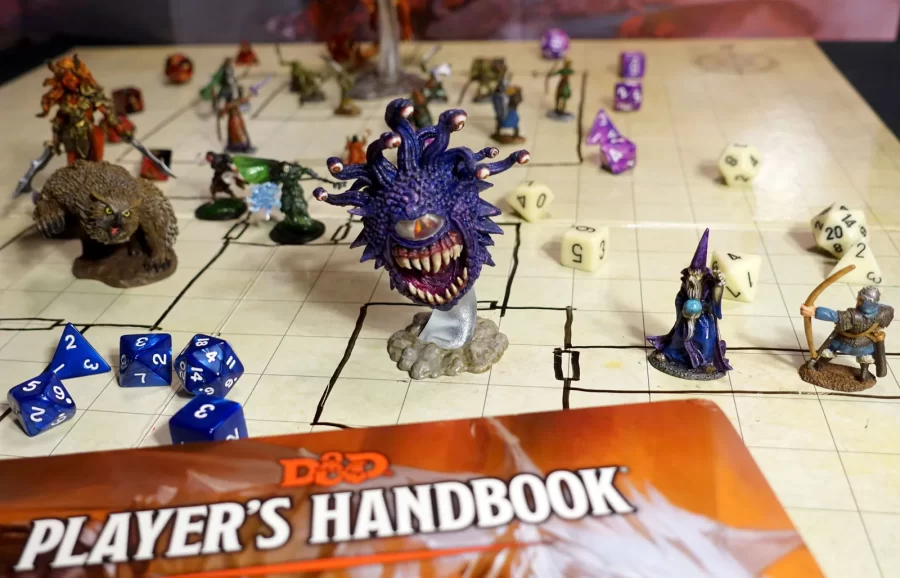Demonic or Delightful?
A brief history of Dungeons & Dragons.
Since its creation in 1974, Dungeons & Dragons (often shortened to DND or D&D) has been turning heads. As the major name in the world of tabletop role-playing games, D&D defined the genre. Gameplay involves a leader, referred to as the “Dungeon Master” or “DM” guiding a group of players through an adventure within the bounds of a dense set of rules and polygonal dice.
Though widely regarded as somewhat nerdy, the game has only risen in popularity throughout time, particularly with the release of its 5th edition in 2014. True to this trend include two Dungeons & Dragons themed movies, including one of the same title in 2000 and the recent Dungeons & Dragons: Honor Among Thieves, which came out on March 31st of this year. However, the franchise has certainly not always been accepted by society.
While relatively unknown throughout the 1970s, the game was less unpopular than it was niche. During the 80s, however, came a new cultural craze during which anything seen as “evil” or “witchy” (according to Christian beliefs) was labeled demonic. There were several causes to this, including the rise of apprehended serial killers, including Jeffery Dahmer and Richard Ramirez. The exposure of such evil in society led to the question of why this was happening. Dungeons & Dragons, with its plentiful references to witchcraft, magic, demons, and other supernatural and hellish things was a major concern for those caught up in the trend. In fact, many consider D&D to be the main opponent of those pushing for the end of “demonic” influences in culture.
Throughout the 80s, a plethora of loosely connected and even random events were associated with Dungeons & Dragons, including suicides, assaults, and other violent or taboo behaviours. The disappearance and eventual suicide of James Egbert was particularly vital to casting the game as an evil influence. Egbert played D&D, which, due to the craze at the time, led police to believe that it was linked to his disappearance. Now, Egbert’s death is now believed to be caused by depression, drug addiction, and a struggle coming to terms with being LGBTQ, but at the time, these reports coming from an authority figure caused an even greater fear of the role-playing game.
With time, the craze declined, and society began to accept that the game likely did not cause increased violence. Those who still feared violent games largely began taking interest with new video games such as DOOM. As such, it dipped back under the radar for 30 years, resurfacing with the release of 5th edition D&D, which revamped the system for easier and more flexible gameplay. As a result, the game rocketed back into the spotlight, continuing to grow ever more popular and bringing with it books, podcasts, movies, and more.
This is largely where Dungeons & Dragons stands today. Aside from a recent controversy regarding copyright policy changes (which were later reversed), the game has maintained its new uncontroversial popularity with very few accusations of demonic origins.
An interesting game with an interesting track record, Dungeons & Dragons is easier to play today than ever before. While certainly not for everyone, it can be a fun experience for those who are interested in fantasy, tabletop games, or just good old imagination.


